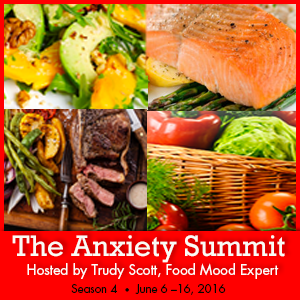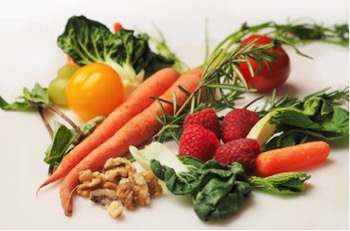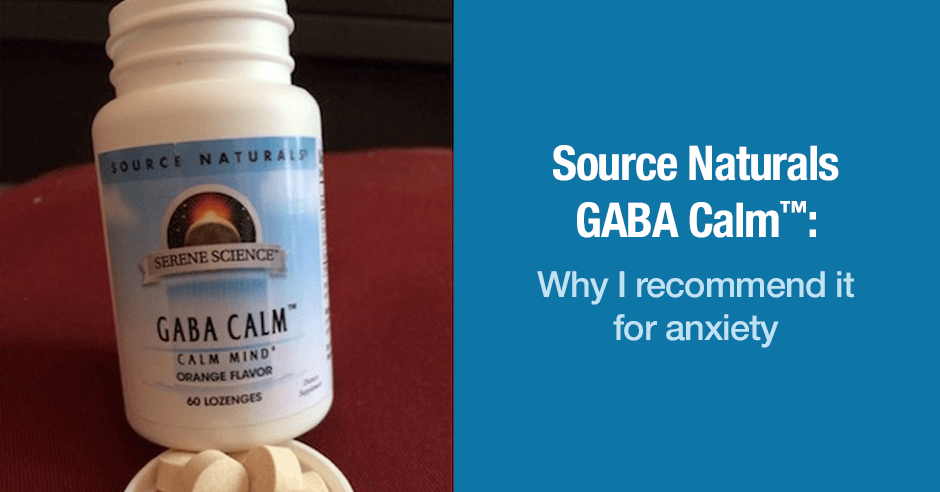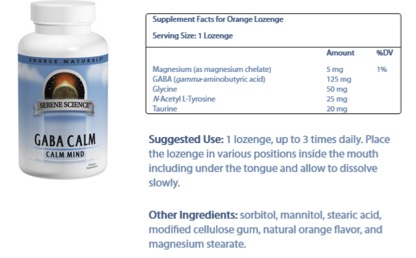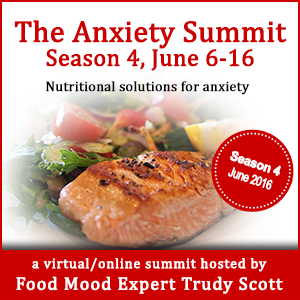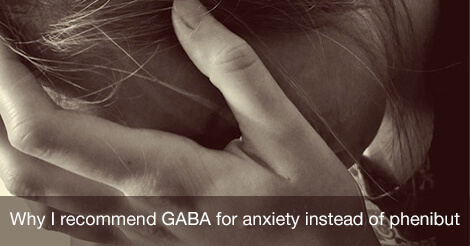
I have concerns with phenibut and I don’t feel anyone should be using it. It is widely used in Russia as a medication for anxiety and it’s only available by prescription in that country. It’s available over-the-counter in the USA, Australia and the UK and it’s very effective for anxiety and insomnia. It’s for this reason that many anxious individuals really love it and practitioners recommend it.
Here is some information about phenibut from this 2001 paper – Phenibut (beta-phenyl-GABA): a tranquilizer and nootropic drug:
Phenibut (beta-phenyl-gamma-aminobutyric acid HCl) is a neuropsychotropic drug that was discovered and introduced into clinical practice in Russia in the 1960s. It has anxiolytic and nootropic (cognition enhancing) effects. It acts as a GABA-mimetic, primarily at GABA(B) and, to some extent, at GABA(A) receptors. It also stimulates dopamine receptors and antagonizes beta-phenethylamine (PEA), a putative endogenous anxiogenic. The psychopharmacological activity of phenibut is similar to that of baclofen, a p-Cl-derivative of phenibut.
Phenibut is widely used in Russia to relieve tension, anxiety, and fear, to improve sleep in psychosomatic or neurotic patients; as well as a pre- or post-operative medication. It is also used in the therapy of disorders characterized by asthenia [abnormal physical weakness or lack of energy] and depression, as well as in post-traumatic stress, stuttering and vestibular disorders.
One of the reasons phenibut seems to work so well is because it is so similar to benzodiazepines. The above paper goes on to state:
Comparison of phenibut with piracetam and diazepam reveals similarities and differences in their pharmacological and clinical effects.
There is research showing that physical dependence can develop, including tolerance and withdrawal, and adverse symptoms can be similar to benzodiazepines: Phenibut Dependence
We present a case of a patient who used phenibut to self-medicate anxiety, insomnia and cravings for alcohol. While phenibut was helpful initially, the patient developed dependence including tolerance, significant withdrawal symptoms within 3-4 h of last use and failure to fulfil his roles at work and at home. He finally sought medical assistance in our addictions clinic. We have gradually, over the course of 9 weeks, substituted phenibut with baclofen, which has similar pharmacological properties, and then successfully tapered the patient off baclofen. This required approximately 10 mg of baclofen for each gram of phenibut.
I talk about my concerns about phenibut and cover the best forms of GABA in my Anxiety Summit season 4 presentation – GABA: Blood Brain Barrier Controversy Concerns, Best Forms and How to Do a Trial for Eliminating Anxiety, and share what other practitioners share:
…practitioners will say well they use it cautiously. They only use it if really needed. And some practitioners will say they pulse. So they’ll have a client or a patient take it for a certain number of days and then stop for a certain number of days.
I just think let’s err on the side of caution and let’s not even go there. Let’s use these other nutrients [like GABA].
Why mess with something when you’ve got something else that can be used. I’ve had practitioners say to me “Well, phenibut works so well. That’s why I use it. GABA doesn’t seem to work as well.” And maybe it’s because they are not doing it sublingually. So if you’ve been using phenibut or you’re a practitioner I’d love to hear from you if you switch your patients or your clients to GABA and have them open up the capsules. Let us know if you’re finding better results with that method rather than having them swallow the GABA capsules.
During this same GABA presentation on the Anxiety Summit I share some of my other concerns about phenibut:
It’s used in high doses for performance enhancement and what really horrified me is that there are these dedicated forums with information on how to taper safely. So there are these forums that talk about phenibut like it’s a drug and tell people how they can safely go this high [on the phenibut] and if they get these [bad] effects, what they need to do and how they can taper. When I read all that I was just horrified.
Why mess with something like phenibut when we’ve got GABA that does work so well when used in the right way (sublingually appears to be most effective) and when trialed to find the ideal targeted dose for your particular needs.
If you’d like a refresher or want to learn more about the following topics, be sure to listen (or re-listen if you tuned in during the summit) to my season 4 Anxiety Summit presentation on GABA:
- more about phenibut
- gabapentin (which also has issues and withdrawal symptoms can to mimic some of the same withdrawal symptoms associated with benzodiazepine and alcohol withdrawal)
- the blood-brain barrier GABA concerns that many people raise (and one of the reasons many practitioners say they like phenibut)
- some possible mechanisms as to how GABA does work to ease anxiety and worry
- good forms of GABA and how best to use GABA
- how to do a GABA trial to find your ideal dose (you can find some of this information here and in my book The Antianxiety Food Solution)
- feedback from people who have used GABA with success (you can also find some of that positive feedback here)
- and what to use if you don’t have access to GABA supplements
Please share your phenibut and GABA experiences so we can all learn.
